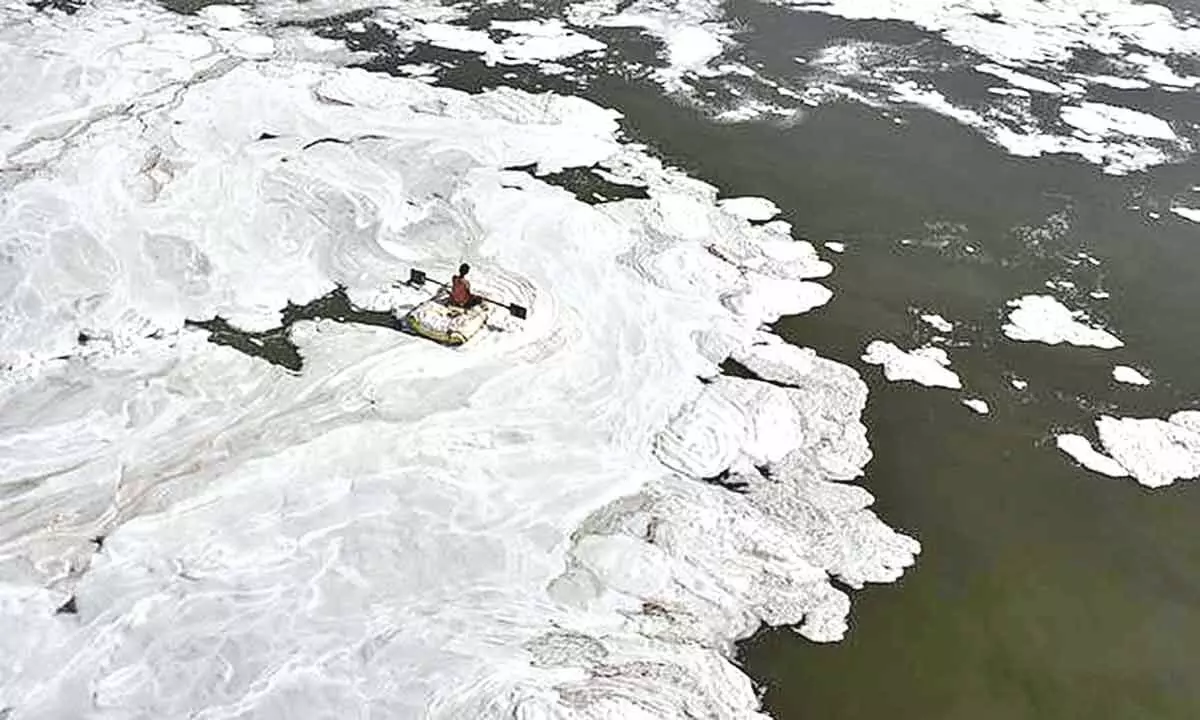Why India is facing an environmental emergency
India ranks at the bottom in 180 countries in 2022 Environmental Performance Index. It’s time that political and thought leaders woke up to the challenge of environmental emergency
image for illustrative purpose

The 2022 EPI, done by Yale and Columbia University researchers, is a data-based summary of the State of sustainability in 180 countries. The EPI ranking uses 40 performance indicators like climate change, environmental public health, and biodiversity
The 2022 Environment Performance Index (EPI) placing India at the bottom of its ranking confirms, if any confirmation is needed, that the situation in our country is alarming. Even though some observations made in the EPI report are contentious, the message is clear: India is facing an environmental emergency. Those who matter ought to act, and act now.
The 2022 EPI, done by Yale and Columbia University researchers, is a data-based summary of the State of sustainability in 180 countries. The EPI ranking uses 40 performance indicators like climate change, environmental public health, and biodiversity.
"With markedly poor air quality and quickly rising greenhouse gas emissions, India, for the first time, comes in at the very bottom of country rankings. Poor air quality and rising GHG emissions continue to impact China's EPI ranking, with the nation placing 160th out of 180 countries on the 2022 scorecard," a statement by EPI said.
The EPI attributed poor performance to such factors as civil unrest and wrong priorities: "The lowest scores overall go to countries that are struggling with civil unrest or other crises, including Myanmar and Haiti, or nations that have prioritized economic growth over environmental sustainability, such as India, Vietnam, Bangladesh, and Pakistan."
Has Pakistan prioritized economic growth over environmental sustainability? Evidence suggests that it has prioritized jihad over everything else! Even the assertion that India has prioritized growth over environment has to be taken with a pinch of salt. It is a well-known fact that projects worth thousands of crores of rupees got aborted because of green concerns.
The central government and its supporters may claim that the EPI is not very accurate and that it exaggerates the situation in India. Perhaps the environment in India is not worse than that in every other country in the world. This, however, does not mean that there is no environmental emergency in our country.
In September last year, the University of Chicago's Air Quality Life Index (AQLI) report said that residents of northern India could lose over nine years of life expectancy if the 2019 air pollution levels continue. The air quality index (AQI) in northern India at the onset of winter every year flies off the charts, leading to a medical emergency. Millions of people suffer physically; hospitals report a surge in the number of weather-hit patients; India's image gets tarnished. And yet, even after so many years, with full awareness about the severity of the problem, nobody has been able to salvage the situation. For the wish to do something concrete—by those who matter - is simply lacking.
The World Air Quality Report, 2020, prepared by the Swiss organization IQAir, also showed that air pollution was plaguing our country. Out of 30 most polluted cities, 22 were in India, it said.
Our politicians, however, are content with token measures and pro-forma statements. They want to keep people's attention away from the real issues, because addressing real issues is tough. This is the reason that they are more focused on such matters as changing names of places and raking up the events that happened hundreds of years ago.
Politicians tend to deal with environment problems in a simplistic, easy manner - e.g., stopping construction activity when air pollution peaks, shutting down schools. The difficult but correct approach is to reduce the amount of dust generation, but that calls for fundamental changes in which the local officials function: making them more responsive and responsible, improving efficiency at various levels, checking corruption, covering dusty patches with vegetation, promoting forestation, checking deforestation, etc.
Then there are environmentalists who are obsessed with climate change and vehicular emissions. The obsession is based on dogmas rather than facts; otherwise they would have emphasized the importance of checking dust pollution. In their scheme of things, the main culprits are vehicles, especially cars. Such diagnosis also feeds politicians' fixation with electric vehicles. It is time that political and thought leaders woke up to the challenge of environmental emergency and rationally faced the challenge.

